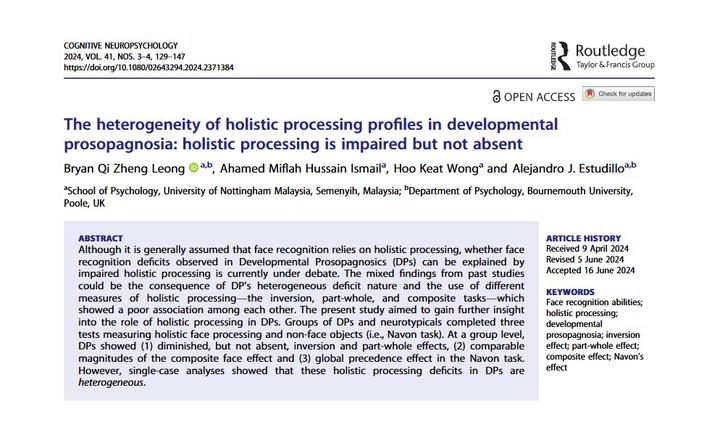The heterogeneity of holistic processing profiles in developmental prosopagnosia: holistic processing is impaired but not absent

Abstract
Although it is generally assumed that face recognition relies on holistic processing, whether face recognition deficits observed in Developmental Prosopagnosics (DPs) can be explained by impaired holistic processing is currently under debate. The mixed findings from past studies could be the consequence of DP’s heterogeneous deficit nature and the use of different measures of holistic processing—the inversion, part-whole, and composite tasks—which showed a poor association among each other. The present study aimed to gain further insight into the role of holistic processing in DPs. Groups of DPs and neurotypicals completed three tests measuring holistic face processing and non-face objects (i.e., Navon task). At a group level, DPs showed (1) diminished, but not absent, inversion and part-whole effects, (2) comparable magnitudes of the composite face effect and (3) global precedence effect in the Navon task. However, single-case analyses showed that these holistic processing deficits in DPs are heterogeneous.